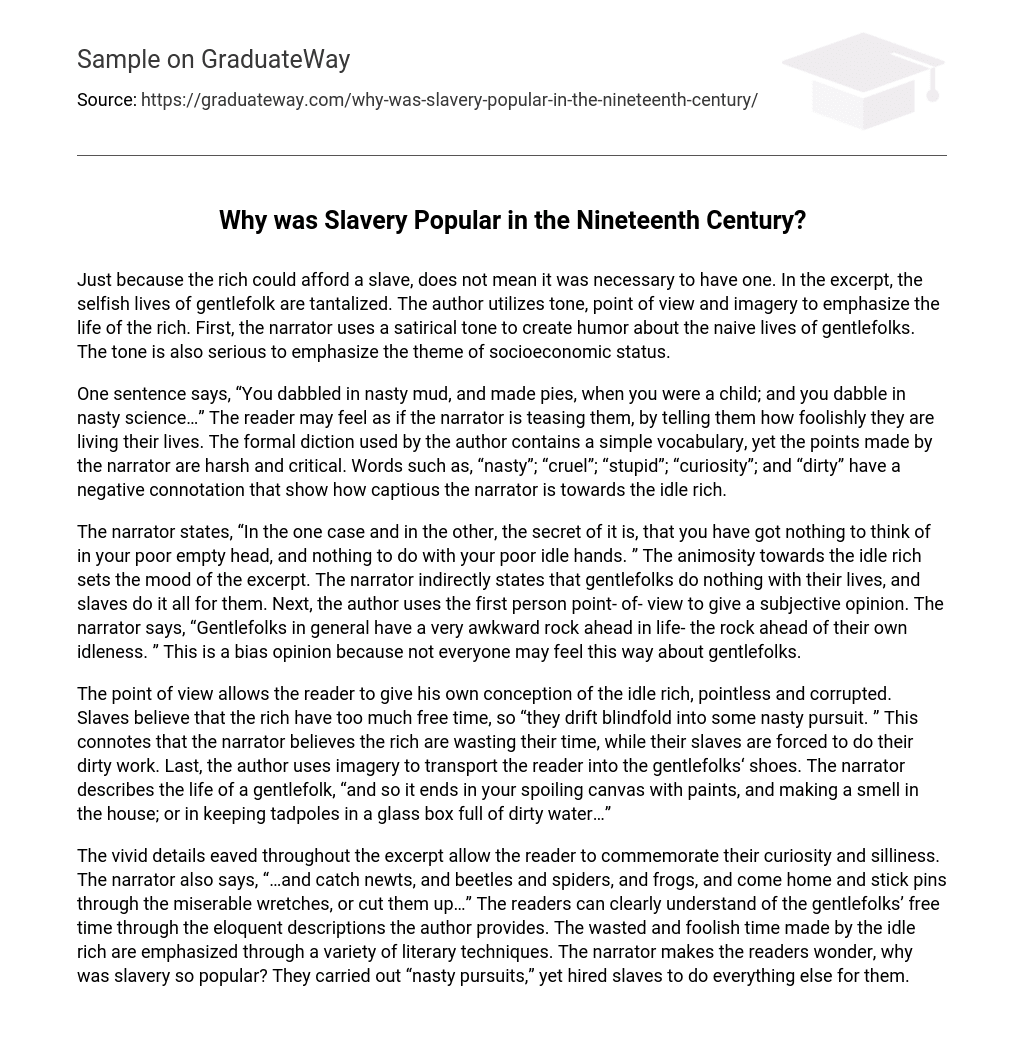Just because the rich could afford a slave, does not mean it was necessary to have one. In the excerpt, the selfish lives of gentlefolk are tantalized. The author utilizes tone, point of view and imagery to emphasize the life of the rich. First, the narrator uses a satirical tone to create humor about the naive lives of gentlefolks. The tone is also serious to emphasize the theme of socioeconomic status.
One sentence says, “You dabbled in nasty mud, and made pies, when you were a child; and you dabble in nasty science…” The reader may feel as if the narrator is teasing them, by telling them how foolishly they are living their lives. The formal diction used by the author contains a simple vocabulary, yet the points made by the narrator are harsh and critical. Words such as, “nasty”; “cruel”; “stupid”; “curiosity”; and “dirty” have a negative connotation that show how captious the narrator is towards the idle rich.
The narrator states, “In the one case and in the other, the secret of it is, that you have got nothing to think of in your poor empty head, and nothing to do with your poor idle hands. ” The animosity towards the idle rich sets the mood of the excerpt. The narrator indirectly states that gentlefolks do nothing with their lives, and slaves do it all for them. Next, the author uses the first person point- of- view to give a subjective opinion. The narrator says, “Gentlefolks in general have a very awkward rock ahead in life- the rock ahead of their own idleness. ” This is a bias opinion because not everyone may feel this way about gentlefolks.
The point of view allows the reader to give his own conception of the idle rich, pointless and corrupted. Slaves believe that the rich have too much free time, so “they drift blindfold into some nasty pursuit. ” This connotes that the narrator believes the rich are wasting their time, while their slaves are forced to do their dirty work. Last, the author uses imagery to transport the reader into the gentlefolks‘ shoes. The narrator describes the life of a gentlefolk, “and so it ends in your spoiling canvas with paints, and making a smell in the house; or in keeping tadpoles in a glass box full of dirty water…”
The vivid details eaved throughout the excerpt allow the reader to commemorate their curiosity and silliness. The narrator also says, “…and catch newts, and beetles and spiders, and frogs, and come home and stick pins through the miserable wretches, or cut them up…” The readers can clearly understand of the gentlefolks’ free time through the eloquent descriptions the author provides. The wasted and foolish time made by the idle rich are emphasized through a variety of literary techniques. The narrator makes the readers wonder, why was slavery so popular? They carried out “nasty pursuits,” yet hired slaves to do everything else for them.





